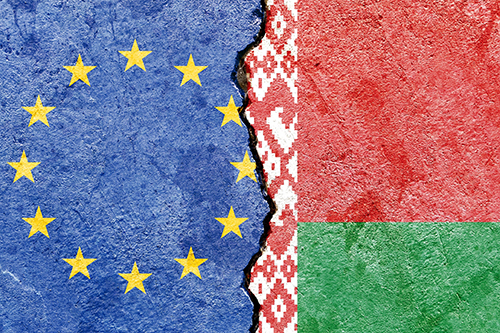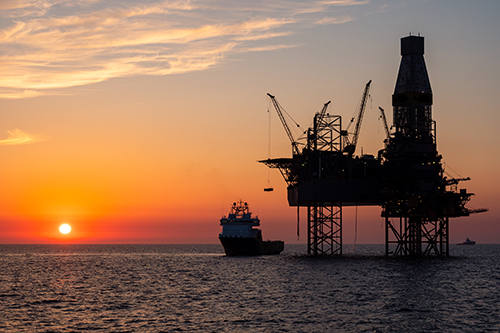In response to sanctions against Russia, President Vladimir Putin has signed a decree stating that buyers of natural gas from many of the world’s markets must pay for its supply in roubles.
Professor Michael Tamvakis, Professor of Commodity Economics and Finance at Bayes Business School (formerly Cass) believes the move is intended to provide leverage for Russia’s central bank.
“With very few exceptions, commodities are priced and traded internationally in US Dollars as the de facto world currency,” Professor Tamvakis said.
“It would appear that Russia is simply showing defiance by forcing the West to accept the rouble as a strong currency, in exchange for continuing to supply gas. From the point of view of the buyer it means that they have to buy roubles – typically in exchange for these Dollars – to make payments to Gazprom. This would give some leverage to the Russian central bank and allow hard currency to flow back to Russian coffers.
“This would also imply that European buyers have to deal with the Russian central bank, which is under sanctions, and applies even if they do so indirectly via the currently unsanctioned Gazprombank.
“In the past there was a suggestion by Saudi Arabia and other OPEC members to replace these Dollars with Euros or other strong currencies to pay for its oil because of the weakness of the Dollar, but this never materialised. Similarly, I can’t see a switch to roubles being sustainable for gas, and even if it does it will not take long for buyers to find alternative sources of gas and forego rouble payments altogether.”
Redirection of trade flows
Professor Tamvakis believes Russia risks losing buyers for its gas if it pushes too hard on its demands.
“In the short term it will be the European Union (EU), and particularly Germany, which is the most reliant on Russian gas and will suffer from the interruption of Russian gas supply” Professor Tamvakis continued.
“Germany and Austria are already talking about rationing gas if Gazprom insists on accepting payments only in roubles. Gas from elsewhere, such as the North Sea or liquefied natural gas (LNG) imports can replace some of the potential loss of Russian supply and these alternative sources will continue being paid in US Dollars. Such a transition will be difficult and costly in the short term though.
“In the longer term, we are likely to see restructuring of commodity trade flows – especially for energy. As it stands, Asia is the largest importer of energy commodities with China the largest oil importer and India the third largest. Russia has been targeting these two countries in the last decade in order to diversify its client base away from the EU.
“It will be interesting to see whether Russia insists on rouble payments from these two countries as well. It has not given any such indication so far.
“If increased gas and oil flows are redirected towards Asia, via the North Sea Route and Siberian pipelines like Power of Siberia and ESPO, Europe will need to obtain its gas from elsewhere – which could include pipeline imports from Azerbaijan, and pipeline gas from Algeria via Spain.
“It is certainly possible for increased LNG flow from the United States, Qatar, West Africa and even Australia to Europe, provided Asian import requirements can be satisfied by increased Russian exports.”
Painful process of reducing reliance on Russia
Although Professor Tamvakis believes there are short-term solutions, changes will come at a cost.
“It is difficult to forecast how long these sanctions will last, and I think the process of reducing this reliance will be long and initially painful,” he said.
“Sanctions imposed on Iran, for instance, are still very much in place despite talks to find a solution. The big difference here is that only very few individual countries were dependent on Iranian exports and it was relatively painless to find alternatives. With Russia, the whole of Europe is reliant, even more so Germany, and it will be very difficult to decouple from Russia but equally difficult to trust Russia again.
“The fix will involve switching to new suppliers, building new infrastructure and accelerating pathways to net zero by reducing reliance on oil – for transportation – and gas for industry, heating and power generation.”
All quotes can be attributed to Professor Michael Tamvakis, Professor of Commodity Economics and Finance at Bayes Business School (formerly Cass).



